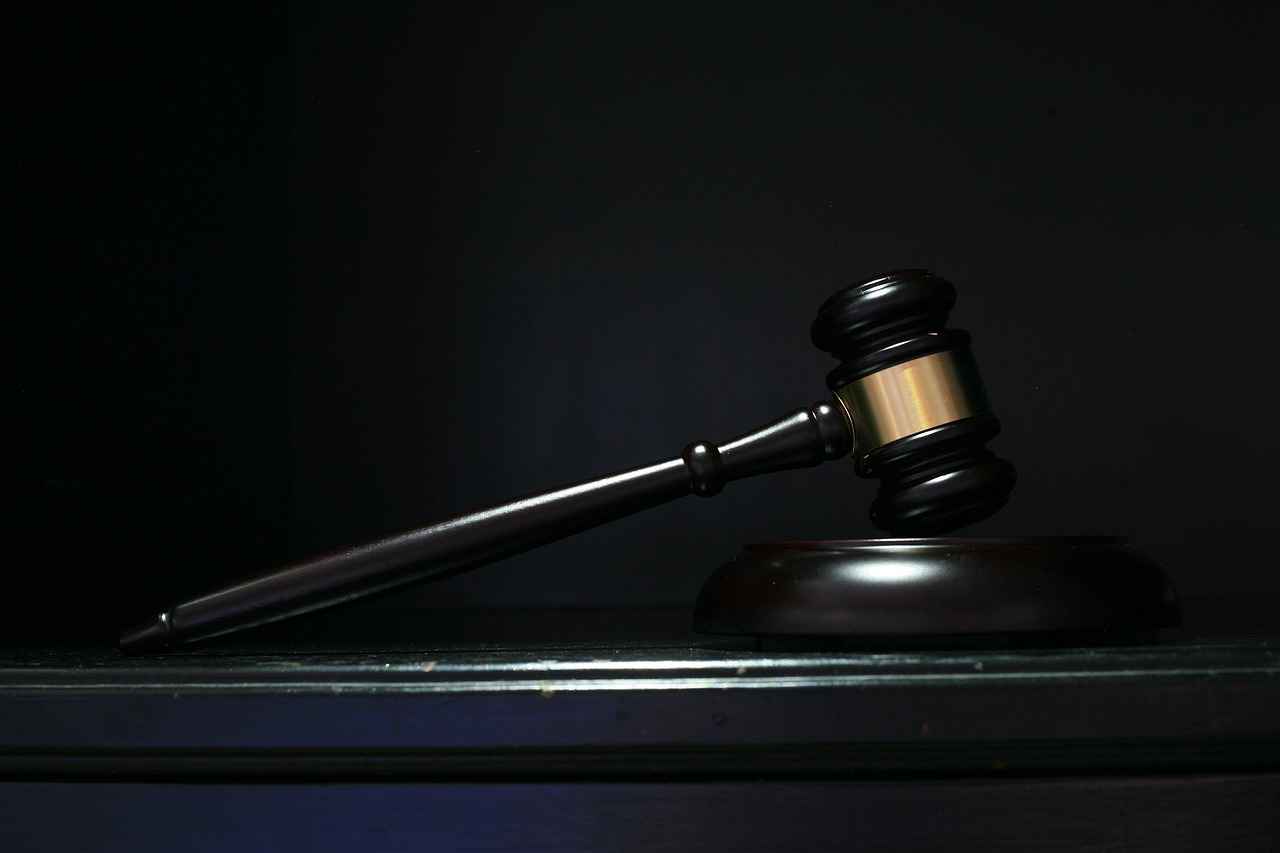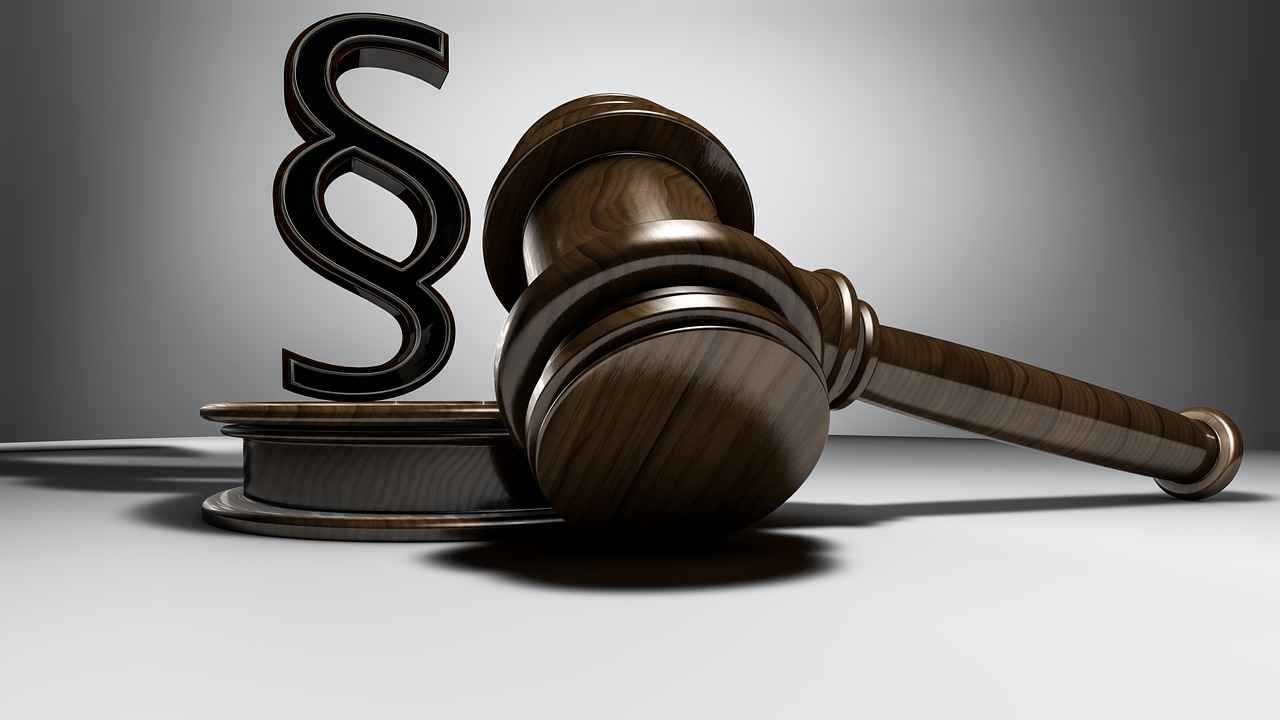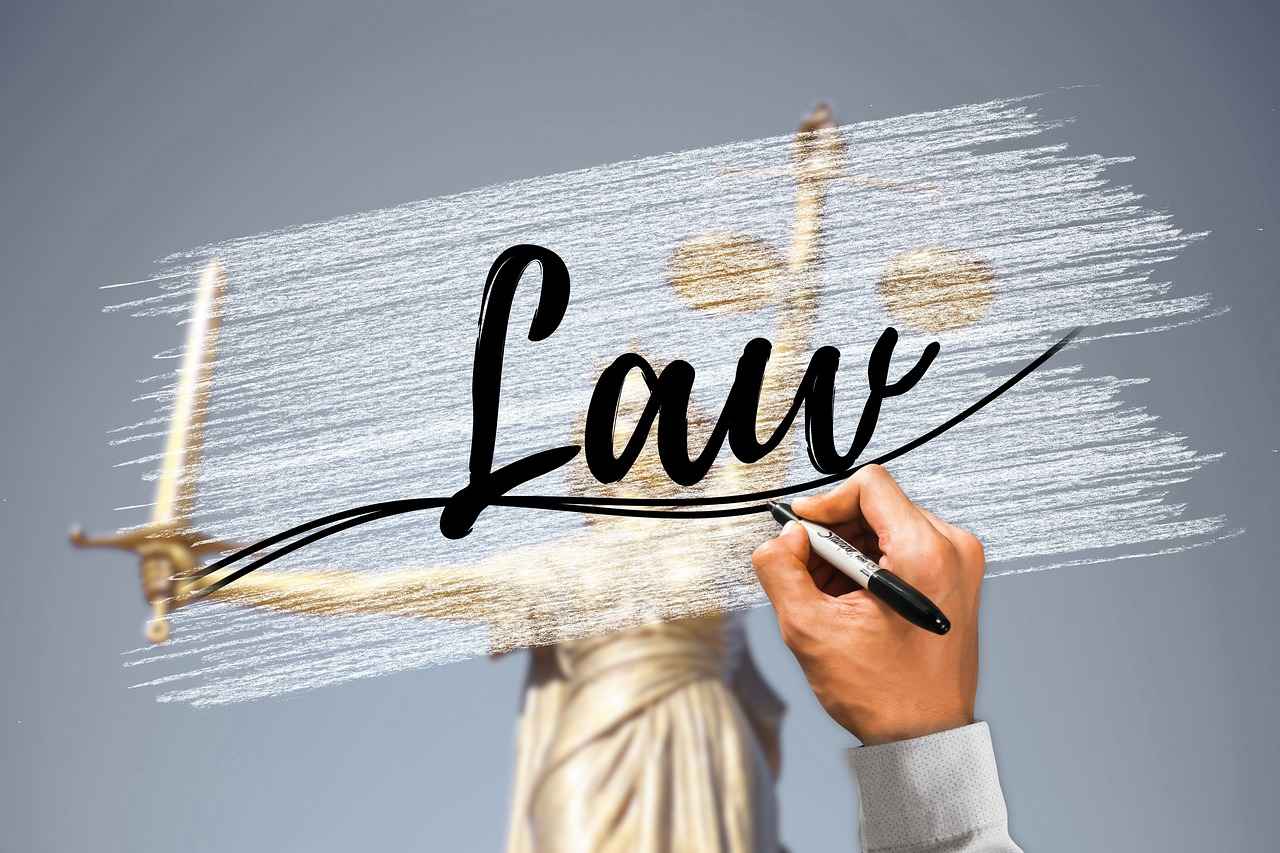This article explores the types of legal cases prevalent in Oklahoma City and provides expert guidance on finding qualified attorneys for each case type.
In Oklahoma City, as in many urban areas across the United States, residents encounter a variety of legal issues that require expert representation. Understanding the types of legal cases that are common in this region is crucial for individuals seeking justice or resolution. Below, we delve into different case types and offer practical advice on how to find the right attorney for your needs.
Personal Injury Cases
Personal injury law encompasses a range of incidents where individuals suffer harm due to someone else’s negligence. Common cases include car accidents, slip and falls, and workplace injuries. To find an experienced personal injury attorney in Oklahoma City, look for lawyers with a strong track record of successful settlements and verdicts. Utilize online platforms like Avvo or Martindale-Hubbell to check ratings and reviews. Red flags to avoid include attorneys who promise guaranteed results or pressure you to settle quickly.
Medical Malpractice Claims
Medical malpractice involves healthcare professionals failing to provide adequate care, resulting in patient harm. These cases can be intricate, requiring a lawyer with specialized knowledge in medical laws. Seek attorneys who have experience in handling similar cases and can provide references. Verify their credentials through state bar associations and inquire about their success rates in medical malpractice litigation.
Breach of Contract Disputes
Breach of contract disputes arise when one party fails to fulfill their obligations under a contract. Finding a lawyer experienced in contract law is essential. Look for attorneys who understand the nuances of both business and personal agreements. A good contract attorney will not only represent you but also help you understand the potential outcomes of your case.
Property Disputes
Property disputes can stem from boundary issues, ownership claims, or landlord-tenant disagreements. When searching for a real estate attorney, consider their experience with similar property disputes. It’s beneficial to choose an attorney who has a deep understanding of local real estate laws and can navigate the complexities of property ownership in Oklahoma.
Landlord-Tenant Disputes
These disputes often involve issues such as eviction, lease violations, and security deposits. To find a knowledgeable attorney, look for those who specialize in landlord-tenant law. They should be familiar with local housing regulations and have experience representing either landlords or tenants. Checking online reviews and asking for referrals can help you gauge their effectiveness.
Defamation Cases (Libel/Slander)
Defamation cases require a nuanced understanding of free speech laws. When seeking an attorney for defamation claims, prioritize those with a background in media law or civil rights. They should be able to articulate the complexities of proving harm to your reputation. Always verify their previous case outcomes and client testimonials.
Employment Disputes
Employment law covers a range of issues, including wrongful termination and workplace discrimination. Finding an attorney who specializes in employment law is crucial. Look for lawyers who have experience dealing with the Equal Employment Opportunity Commission (EEOC) and other relevant agencies. A strong attorney will also provide insights into your rights as an employee and potential remedies.
Product Liability Cases
Product liability holds manufacturers accountable for defective products. To find a competent attorney in this field, look for those who have successfully handled similar claims. They should have a strong understanding of product safety regulations and consumer rights. Always check their background and case history for relevant experience.
Wrongful Death Claims
These claims arise when a person’s death is caused by someone else’s negligence. Finding an attorney who is compassionate yet assertive is essential. Look for lawyers with experience in handling sensitive cases and who can navigate the emotional complexities involved. They should also have a strong track record in achieving settlements for wrongful death claims.
Class Action Lawsuits
Class action lawsuits allow groups of individuals to sue a defendant collectively. To find an attorney experienced in class actions, look for firms that have successfully led such lawsuits in the past. They should be able to explain the process clearly and have a solid understanding of the legal standards required for class certification.
Assault and Battery Cases
Assault and battery involve personal harm and can lead to both civil and criminal charges. When seeking a criminal defense attorney, prioritize those who specialize in violent crimes. They should have experience in negotiating plea deals and navigating the criminal justice system effectively.
Drug Offenses
Drug offenses can carry severe penalties, making it vital to find an attorney experienced in drug law. Look for lawyers who have successfully defended clients against similar charges and understand the nuances of state and federal drug laws. Their knowledge can be instrumental in crafting a solid defense strategy.
Theft and Burglary Charges
These charges can have long-lasting consequences on your life. When searching for a defense attorney, consider their experience with theft and burglary cases. A skilled attorney will help you understand the charges against you and work to minimize the potential penalties.
Fraud and Embezzlement Cases
Fraud and embezzlement cases require a deep understanding of financial laws. Seek attorneys with experience in white-collar crime, as they will have the expertise necessary to navigate complex financial regulations. Always inquire about their past case results and client satisfaction.
Murder and Homicide Cases
These are among the most serious criminal charges one can face. Finding a seasoned criminal defense attorney is crucial. Look for lawyers with a proven track record in homicide cases, as they will have the skills needed to mount a robust defense. Their experience can make a significant difference in the outcome of your case.
DUI/DWI Charges
DUI/DWI charges can have severe repercussions, including license suspension and jail time. When searching for an attorney, prioritize those who specialize in DUI cases. They should be familiar with local laws and have a history of successfully defending clients against similar charges.
Domestic Violence Cases
Domestic violence cases involve sensitive legal issues and require compassionate representation. When seeking an attorney, look for those who specialize in family law and have experience with domestic violence cases. They should be able to provide both legal guidance and emotional support during this challenging time.

Personal Injury Cases
Understanding personal injury law is essential for victims seeking compensation for their losses. Personal injury cases encompass a wide range of incidents where an individual suffers harm due to another party’s negligence or intentional actions. Common types of personal injury cases include automobile accidents, slip and fall incidents, workplace injuries, and product liability claims. Each type of case presents unique challenges and requires specific legal expertise to navigate effectively.
When pursuing a personal injury claim, it is crucial to establish that the other party was at fault. This often involves gathering evidence, such as medical records, witness statements, and accident reports. Victims must also be aware of the statute of limitations, which varies by state and dictates the time frame within which a claim must be filed.
Finding an experienced attorney specializing in personal injury law can significantly impact the outcome of your case. Here are some practical steps to help you locate the right legal representation:
- Research Online: Utilize legal directories such as Avvo and FindLaw to search for personal injury attorneys in your area. These platforms provide attorney profiles, client reviews, and ratings.
- Check Credentials: Look for attorneys with specific certifications in personal injury law, such as membership in the American Association for Justice or state bar associations that offer specialization programs.
- Seek Referrals: Ask friends, family, or colleagues for recommendations. Personal referrals can provide valuable insights into an attorney’s capabilities and client service.
- Schedule Consultations: Many personal injury attorneys offer free initial consultations. Use this opportunity to discuss your case, evaluate the attorney’s communication style, and assess their understanding of your unique situation.
- Evaluate Experience: Inquire about the attorney’s experience with cases similar to yours. A lawyer with a proven track record in personal injury cases will be better equipped to handle the complexities of your claim.
- Assess Comfort Level: It is essential to feel comfortable and confident in your attorney’s abilities. Trust your instincts when deciding if an attorney is the right fit for you.
Red flags to watch out for when hiring a personal injury attorney include:
- High-pressure sales tactics or promises of guaranteed outcomes.
- Attorneys who lack a clear understanding of your case or fail to answer your questions satisfactorily.
- Negative reviews or a lack of transparency regarding fees and costs associated with your case.
In summary, understanding personal injury law and knowing how to find the right attorney can significantly influence your ability to secure fair compensation for your injuries. By conducting thorough research and considering the factors outlined above, you can increase your chances of finding a qualified legal professional who will advocate for your rights.

Medical Malpractice Claims
Medical malpractice claims represent a significant area of law that focuses on instances where healthcare professionals fail to provide the standard of care expected, resulting in harm to patients. These cases can be particularly complex due to the intricate medical details involved and the emotional weight they carry for victims and their families.
Understanding Medical Malpractice
Medical malpractice occurs when a healthcare provider, such as a doctor, nurse, or hospital, acts negligently, leading to injury or death. Common claims include misdiagnosis, surgical errors, medication mistakes, and inadequate follow-up care. To establish a successful malpractice claim, the plaintiff must demonstrate that the provider’s actions deviated from accepted medical practices and directly caused harm.
Identifying the Best Legal Representation
Finding a qualified attorney to handle a medical malpractice case is crucial. Here are some proven methods to identify the best legal representation:
- Specialization: Look for attorneys who specialize in medical malpractice law. They should have a solid track record of handling similar cases and a deep understanding of both medical and legal standards.
- Experience: An attorney with years of experience in this niche will be more adept at navigating the complexities of medical malpractice claims. Ask about their past cases and outcomes.
- Reputation: Research online reviews and testimonials from previous clients. Websites like Avvo and Martindale-Hubbell can provide insight into an attorney’s reputation.
- Initial Consultation: Most attorneys offer a free initial consultation. Use this opportunity to assess their communication skills, empathy, and willingness to answer your questions.
- Fees and Costs: Understand the fee structure. Many medical malpractice attorneys work on a contingency basis, meaning they only get paid if you win your case. Ensure you are clear on any potential costs involved.
Red Flags to Avoid
While searching for an attorney, be aware of potential red flags:
- Lack of Experience: Avoid attorneys who do not have specific experience in medical malpractice cases.
- Pressure Tactics: Be cautious of lawyers who pressure you into signing contracts or making quick decisions.
- Unclear Fee Structures: If the attorney is not transparent about their fees, it may indicate a lack of professionalism.
- Poor Communication: An attorney who is difficult to reach or does not respond promptly may not prioritize your case.
Conclusion
In the emotionally charged realm of medical malpractice, having the right legal representation can make a significant difference in the outcome of your case. By following the guidelines above, you can increase your chances of finding a competent and trustworthy attorney to advocate for your rights.

Breach of Contract Disputes
are a frequent occurrence in both business and personal agreements, often leading to significant legal challenges. Understanding the elements that constitute a breach of contract is essential for anyone involved in such disputes. A breach can occur in various forms, including failure to perform on time, failure to perform as promised, or failure to perform at all. Each of these scenarios can lead to legal recourse, and recognizing the nuances of your specific situation is crucial.
In order to successfully navigate a breach of contract case, one must understand the essential elements that courts often consider:
- Existence of a valid contract: There must be a legally binding agreement between parties.
- Performance and breach: One party must have failed to fulfill their contractual obligations.
- Damages: The non-breaching party must demonstrate that they suffered a loss as a result of the breach.
- Notice of breach: The non-breaching party typically must notify the breaching party of the breach.
When seeking a contract attorney, it is vital to consider several qualities that can significantly impact the outcome of your case:
- Experience: Look for an attorney with a proven track record in handling breach of contract cases, particularly those similar to yours.
- Specialization: An attorney who specializes in contract law will have a deeper understanding of the intricacies involved.
- Communication skills: Your attorney should be able to explain complex legal concepts in a way that you can understand.
- Negotiation skills: Many contract disputes are resolved through negotiation, so an attorney with strong negotiation skills can be beneficial.
- Reputation: Research reviews and testimonials from past clients to gauge the attorney’s reputation in the legal community.
In addition to these qualities, it is advisable to utilize various platforms that can assist in your search for a qualified attorney. Websites such as Avvo, FindLaw, and Martindale-Hubbell provide directories of attorneys based on their specialties, client reviews, and peer ratings. These resources can help you make an informed decision.
Be cautious of red flags when hiring a contract attorney. Watch for signs such as:
- Lack of transparency: If an attorney is unwilling to discuss fees or their approach to your case, it may be a warning sign.
- Overpromising results: No attorney can guarantee a specific outcome, and those who do may not have your best interests at heart.
- Poor communication: If an attorney does not respond promptly to your inquiries, it may indicate a lack of commitment.
In conclusion, navigating breach of contract disputes requires a solid understanding of the legal framework and the ability to find a qualified attorney who can effectively advocate for your interests. By focusing on the essential elements of your case and the qualities to look for in a legal professional, you can enhance your chances of a favorable resolution.

Property Disputes
can arise from various issues, including boundaries, ownership, easements, and zoning regulations. These disputes often lead to significant emotional and financial stress for the parties involved. Navigating these complex situations requires a clear understanding of property law and the ability to communicate effectively with legal professionals. In this section, we will explore the common causes of property disputes and provide guidance on how to find a trusted real estate attorney to assist you.
One of the most frequent causes of property disputes is boundary disagreements. These occur when two property owners have conflicting claims regarding the exact location of their property lines. Such disputes can escalate quickly, leading to legal action if not resolved amicably. Another common issue is ownership disputes, which can arise from unclear titles, inheritance issues, or co-ownership arrangements. These disputes often require legal intervention to clarify ownership rights and responsibilities.
Finding a qualified real estate attorney is crucial for effectively managing property disputes. Here are some practical steps to assist you in your search:
- Research Local Attorneys: Start by searching online for attorneys specializing in real estate law in your area. Websites like Avvo and FindLaw provide directories of lawyers along with client reviews and ratings.
- Check Credentials: Look for attorneys who have experience specifically in property disputes. Verify their credentials, including their education, years of practice, and any relevant certifications.
- Seek Recommendations: Ask friends, family, or colleagues if they can recommend a reputable attorney. Personal referrals can provide valuable insights into an attorney’s effectiveness and communication style.
- Schedule Consultations: Many attorneys offer free initial consultations. Use this opportunity to discuss your case, ask questions, and gauge their expertise and approach. Pay attention to how well they communicate and whether they listen to your concerns.
- Evaluate Fees: Understand the attorney’s fee structure before hiring them. Some may charge hourly rates, while others may work on a contingency basis. Ensure that you are comfortable with their pricing model.
When selecting an attorney, be wary of red flags that may indicate a lack of professionalism or expertise. For instance, if an attorney is unwilling to provide references or has a history of disciplinary actions, it may be best to look elsewhere. Additionally, be cautious of attorneys who guarantee specific outcomes, as this is often unrealistic in legal matters.
In conclusion, property disputes can be complex and emotionally charged, but with the right legal representation, you can navigate these challenges effectively. By conducting thorough research, checking credentials, and evaluating potential attorneys, you can find a trusted real estate attorney to help you resolve your property disputes.

Landlord-Tenant Disputes
are a common source of legal challenges, often arising from misunderstandings or disagreements regarding lease agreements, property maintenance, and tenant rights. These disputes can escalate quickly, leading to eviction proceedings, financial losses, and emotional stress for both parties involved. It is essential to understand the common issues that arise in these conflicts and how to find a knowledgeable attorney to represent your interests effectively.
One of the most prevalent issues in landlord-tenant disputes is failure to pay rent. When tenants miss payments, landlords may seek eviction. Conversely, tenants may withhold rent due to unaddressed maintenance issues, claiming that the property is uninhabitable. Understanding the laws regarding rent payments and tenant rights is crucial. In many states, landlords are required to provide a safe living environment, and failure to do so can give tenants grounds to withhold rent.
Another common issue involves security deposits. Landlords often require a security deposit before a tenant moves in, which can lead to disputes over its return at the end of the lease. Tenants may argue that deductions for damages are unfair or not justified, while landlords may claim that the property was left in poor condition. Familiarity with local laws regarding security deposits and proper documentation can help both parties navigate these disputes.
Eviction proceedings are perhaps the most severe outcome of landlord-tenant disputes. Landlords must follow specific legal processes to evict a tenant, including providing proper notice and obtaining a court order. Tenants facing eviction should seek legal representation to ensure their rights are protected and to explore options such as negotiating with the landlord or contesting the eviction in court.
To find a knowledgeable attorney specializing in landlord-tenant disputes, consider the following methods:
- Referrals: Ask friends, family, or colleagues for recommendations. Personal experiences can provide valuable insights into an attorney’s effectiveness.
- Online Directories: Websites like Avvo, FindLaw, and the American Bar Association allow you to search for attorneys by practice area and location. Look for lawyers with strong reviews and high ratings.
- Consultation: Schedule consultations with potential attorneys to discuss your case. This meeting can help you gauge their expertise and whether you feel comfortable working with them.
When evaluating potential attorneys, look for the following credentials:
- Experience: Find attorneys with a proven track record in landlord-tenant law. Ask about their experience with cases similar to yours.
- Specialization: Ensure the attorney specializes in real estate or landlord-tenant law, as this will increase their knowledge of relevant regulations and local laws.
- Professional Associations: Membership in organizations such as the National Association of Realtors or local bar associations can indicate a commitment to staying informed about industry changes.
Be cautious of red flags when selecting an attorney:
- Lack of Communication: If an attorney is difficult to reach or does not respond promptly to inquiries, this could indicate future communication issues.
- Unclear Fees: Ensure that the attorney provides a clear fee structure. Be wary of those who are vague about costs or pressure you into signing agreements without explaining them.
- Negative Reviews: Research online reviews and testimonials. Consistent negative feedback can be a warning sign about an attorney’s capabilities.
In summary, landlord-tenant disputes can be complex and emotionally charged. Understanding the common issues and how to navigate them is essential for both landlords and tenants. By following the outlined methods to find a qualified attorney, you can protect your rights and interests in these disputes. Always conduct thorough research and seek legal counsel to ensure that you are well-represented in any legal proceedings.

Defamation Cases (Libel/Slander)
Defamation cases, encompassing both libel and slander, present unique challenges within the legal landscape, requiring a deep understanding of the balance between free speech and the protection of one’s reputation. In the realm of defamation, the burden of proof often lies heavily on the plaintiff, necessitating a meticulous approach to both the legal and factual elements of the case.
Defamation is defined as a false statement presented as a fact that injures a party’s reputation. The distinction between libel and slander is primarily based on the medium: libel refers to written statements, while slander pertains to spoken words. To successfully pursue a defamation claim, the plaintiff must typically establish that:
- The statement was false.
- It was made with negligence or actual malice, especially if the plaintiff is a public figure.
- The statement caused harm to the plaintiff’s reputation.
In many jurisdictions, public figures face a higher threshold to prove defamation, as they must demonstrate that the statement was made with actual malice, meaning the defendant knew the statement was false or acted with reckless disregard for the truth. This nuanced understanding is vital when selecting an attorney skilled in defamation law.
When searching for a qualified attorney to handle a defamation case, consider the following criteria:
- Experience in Defamation Law: Look for attorneys who have a proven track record in defamation cases. They should be familiar with both libel and slander and have experience litigating similar claims.
- Reputation: Research the attorney’s standing in the legal community. Online reviews, testimonials, and references can provide insight into their reputation and effectiveness.
- Communication Skills: A good attorney should be able to clearly articulate complex legal concepts and keep you informed throughout the process.
- Understanding of Media Law: Given the often media-centric nature of defamation cases, an attorney with a background in media law can be particularly advantageous.
Using platforms like Avvo, FindLaw, or Lawyers.com can help you identify potential attorneys in your area. These platforms not only provide reviews and ratings but also allow you to filter by practice area, ensuring that you find someone who specializes in defamation.
When interviewing potential attorneys, be prepared to ask questions such as:
- What is your experience with defamation cases?
- Can you provide examples of past cases you have handled?
- What is your approach to handling defamation claims?
- How do you charge for your services?
It’s also essential to be wary of red flags that may indicate an attorney is not the right fit:
- Lack of Communication: If an attorney is unresponsive during initial consultations, this could be a sign of future communication issues.
- Vague Answers: Be cautious of attorneys who cannot provide specific details about their experience or approach.
- High Pressure Sales Tactics: A reputable attorney should not pressure you into signing a contract on the spot.
Defamation cases can be intricate and emotionally taxing, often involving public scrutiny and personal reputations. Thus, choosing the right attorney is crucial. With the right representation, you can navigate the complexities of defamation law effectively, ensuring that your rights are protected while striving for a resolution that upholds your reputation.

Employment Disputes
are a significant area of concern in today’s workforce, often involving issues such as wrongful termination, discrimination, and harassment. These disputes can arise in various forms, including unfair dismissal, workplace bullying, or failure to accommodate an employee’s needs. Understanding the complexities of employment law is essential for anyone facing such challenges. Therefore, finding an experienced employment law attorney to advocate for your rights is crucial.
One of the first steps in addressing an employment dispute is to recognize the specific nature of your claim. For instance, wrongful termination refers to being fired for illegal reasons, such as discrimination based on race, gender, or age. On the other hand, discrimination can manifest in various ways, including unequal treatment in hiring, promotions, or job assignments. Harassment, particularly sexual harassment, can create a toxic work environment, making it essential to seek legal counsel.
When searching for an attorney, consider the following factors:
- Experience: Look for attorneys who specialize in employment law and have a proven track record of handling cases similar to yours.
- Reputation: Check online reviews and testimonials. A good attorney will have positive feedback from previous clients.
- Credentials: Ensure the attorney is licensed to practice in your state and is a member of relevant legal associations.
- Initial Consultation: Many attorneys offer free consultations. Use this opportunity to gauge their understanding of your case and their approach to handling it.
Additionally, be aware of red flags when selecting an attorney. If an attorney guarantees a specific outcome or pressures you into making quick decisions, it may be wise to seek other options. A reputable attorney will provide realistic expectations based on the facts of your case.
In major metropolitan areas such as New York City, Los Angeles, and Chicago, there are numerous resources available to help you find qualified employment law attorneys. Online platforms like Avvo and FindLaw allow you to search for attorneys by specialty and location. Additionally, local bar associations can provide referrals to reputable lawyers in your area.
In conclusion, navigating employment disputes can be daunting, but with the right legal representation, you can protect your rights and seek the justice you deserve. Finding an experienced employment law attorney is an essential step in this process, ensuring that your case is handled with the expertise it requires.

Product Liability Cases
Product liability cases are essential in ensuring that manufacturers and distributors are held accountable for the safety of their products. These cases arise when a consumer is harmed due to a defective product, which may include design flaws, manufacturing defects, or inadequate warnings about potential dangers. Understanding the various types of product liability claims is crucial for anyone considering legal action.
- Design Defects: These occur when a product is inherently dangerous due to its design, making it unsafe for its intended use.
- Manufacturing Defects: These arise when a product is improperly manufactured, leading to a defect that could cause harm.
- Marketing Defects: These involve inadequate instructions or warnings that fail to inform consumers about potential risks associated with the product.
To successfully pursue a product liability claim, it is essential to demonstrate that the product was defective and that the defect directly caused the injury. This often requires expert testimony and evidence to support the claim.
When seeking a competent attorney for a product liability case, consider the following methods:
- Referrals: Ask friends, family, or colleagues for recommendations. Personal referrals can lead to trustworthy legal representation.
- Online Reviews: Websites like Avvo and Martindale-Hubbell provide ratings and reviews of attorneys based on client feedback and peer evaluations.
- Legal Associations: Look for attorneys who are members of professional organizations such as the American Association for Justice (AAJ) or state bar associations.
When evaluating potential attorneys, pay attention to their experience in product liability cases, their success rates, and their familiarity with similar products. Additionally, ensure they have a solid understanding of relevant state and federal laws.
Be wary of red flags when choosing an attorney. Avoid those who make unrealistic promises about the outcome of your case or who pressure you into signing contracts without fully explaining the terms. A reputable attorney will provide a clear outline of their fees, which may include contingency fees where they only get paid if you win your case.
In conclusion, product liability cases are critical for consumer safety, and finding the right attorney is paramount for navigating these complex legal waters. By understanding the types of claims and employing effective strategies to find a qualified lawyer, you can better protect your rights and seek the compensation you deserve.

Wrongful Death Claims
are among the most sensitive and complex legal matters individuals may face. These claims arise when a person dies due to the negligence or wrongful act of another party, leading to significant emotional and financial challenges for the bereaved family. Navigating the legal requirements for such claims can be daunting, but understanding the process is crucial for seeking justice and compensation.
In most jurisdictions, the legal requirements for filing a wrongful death claim include:
- Establishing a valid relationship: Only certain individuals, such as immediate family members (spouses, children, parents), or legal representatives of the deceased, may file a claim.
- Proving negligence or wrongful act: The claimant must demonstrate that the death was caused by the negligent actions or omissions of another party.
- Documenting damages: It is essential to provide evidence of the financial and emotional impact the death has had on the surviving family members, including lost wages, funeral expenses, and loss of companionship.
Finding an attorney who specializes in is crucial for successfully navigating this emotionally charged process. Here are some steps to locate a qualified attorney:
- Research online: Utilize legal directories and review platforms such as Avvo, Martindale-Hubbell, and FindLaw to identify attorneys with expertise in wrongful death cases. Look for those with high ratings and positive client reviews.
- Consult local bar associations: Local bar associations often provide referral services that can connect you with experienced attorneys in your area who specialize in wrongful death claims.
- Seek recommendations: Ask friends, family, or colleagues for referrals to attorneys they trust. Personal recommendations can provide valuable insights into an attorney’s skills and reliability.
- Interview potential attorneys: Schedule consultations with several attorneys to discuss your case. Prepare questions regarding their experience, success rate, and approach to handling wrongful death claims.
During your interviews, pay attention to the following red flags:
- Lack of experience: Ensure the attorney has a proven track record in handling wrongful death cases specifically.
- Unclear fee structure: Be wary of attorneys who do not provide a clear explanation of their fees and payment structure.
- Poor communication: An attorney’s ability to communicate effectively is essential. If they are unresponsive or dismissive during your initial meetings, consider looking elsewhere.
In summary, wrongful death claims require a compassionate and knowledgeable legal representative. By understanding the legal requirements and taking the time to find the right attorney, families can pursue justice and closure during one of the most challenging times in their lives.

Class Action Lawsuits
are a powerful legal tool that allows a group of individuals to collectively pursue claims against a defendant, typically a large corporation or entity. This process is particularly beneficial when the damages suffered by each individual may be too small to justify the cost of filing a separate lawsuit. By banding together, plaintiffs can share legal costs and increase their chances of achieving a favorable outcome.
The process of initiating a class action lawsuit begins with the identification of a common issue that affects a group of people. This could range from defective products, misleading advertising, to violations of consumer rights. Once a potential case is identified, the first step is to file a motion for class certification in the appropriate court. This motion must demonstrate that the group meets certain criteria, including:
- Numerosity: The class must be large enough that joining all members individually would be impractical.
- Commonality: There must be common legal or factual questions that affect all class members.
- Typicality: The claims or defenses of the representative parties must be typical of those of the class.
- Adequacy: The representative parties must adequately protect the interests of the class.
Once certified, the class action can proceed, allowing the plaintiffs to present their case collectively. This can significantly streamline the legal process and reduce the burden on the courts. However, it’s essential to understand that not all class actions are successful. The outcomes can vary widely based on the specifics of the case, the evidence presented, and the legal arguments made.
Finding an attorney experienced in class action litigation is crucial for the success of your case. Here are some expert tips on how to locate a qualified lawyer:
- Research Law Firms: Look for law firms that specialize in class action lawsuits. Review their track records, case histories, and client testimonials.
- Check Credentials: Ensure the attorney has relevant experience in class action cases. Membership in professional organizations, such as the American Association for Justice, can be a good indicator of expertise.
- Consult Legal Directories: Utilize online legal directories such as Avvo, Martindale-Hubbell, or FindLaw to find attorneys with strong ratings and reviews.
- Schedule Consultations: Meet with potential attorneys to discuss your case. This will give you a sense of their communication style, approach, and whether they understand the complexities of class action lawsuits.
- Ask About Fees: Class action attorneys often work on a contingency fee basis, meaning they only get paid if you win. Clarify their fee structure upfront to avoid surprises later.
Be cautious of red flags when selecting a lawyer. Avoid attorneys who make unrealistic promises about case outcomes, pressure you into signing contracts quickly, or lack transparency about their experience. A reputable attorney will be honest about the challenges of your case and provide a realistic assessment of your chances for success.
In summary, class action lawsuits serve as a vital mechanism for individuals to seek justice against larger entities. By understanding the process and knowing how to find the right legal representation, plaintiffs can significantly enhance their chances of achieving a favorable outcome.

Assault and Battery Cases
represent serious legal matters that can have significant implications for those involved. These cases typically involve allegations of personal harm, which can lead to both civil and criminal charges. Understanding the nuances of these cases is crucial for anyone facing such accusations or for victims seeking justice.
In the legal context, assault refers to the intentional act of causing another person to fear imminent harm, while battery involves the actual physical contact or harm inflicted on another individual. Both offenses can occur independently or together, and they are often classified as misdemeanors or felonies depending on the severity of the actions and the extent of the injuries sustained by the victim.
When navigating assault and battery cases, it is essential to consider the legal implications. Victims may pursue civil lawsuits for compensation, which can cover medical expenses, emotional distress, and lost wages. On the other hand, defendants may face criminal charges that could result in jail time, fines, or probation. The legal landscape surrounding these cases can be complex, with various factors influencing the outcome, such as evidence, witness testimonies, and the credibility of the parties involved.
Finding a qualified criminal defense attorney is critical for anyone involved in an assault or battery case. Here are some practical steps to help you in your search:
- Research Local Attorneys: Start by looking for attorneys who specialize in criminal defense and have experience with assault and battery cases. Online platforms like Avvo and FindLaw can help you identify qualified professionals in your area.
- Check Credentials: Look for attorneys with relevant qualifications, such as a law degree from an accredited institution, membership in state and national bar associations, and certifications in criminal law.
- Read Reviews: Client testimonials and reviews can provide insight into an attorney’s reputation and effectiveness. Pay attention to feedback regarding their communication skills, case outcomes, and overall client satisfaction.
- Schedule Consultations: Many attorneys offer free initial consultations. Use this opportunity to discuss your case, ask questions, and gauge the attorney’s experience and approach to handling similar cases.
- Assess Communication Skills: A good attorney should be able to explain legal concepts in a way that is easy to understand. Ensure that you feel comfortable asking questions and that the attorney is responsive to your concerns.
- Evaluate Fees: Understand the attorney’s fee structure, including hourly rates and retainer fees. Make sure to clarify any additional costs that may arise during the legal process.
It’s also important to be aware of red flags when hiring a criminal defense attorney:
- Lack of Experience: Avoid attorneys who do not have a track record of handling assault and battery cases, as this area of law requires specific knowledge and skills.
- Pressure Tactics: Be cautious of attorneys who pressure you into making quick decisions or signing contracts without giving you adequate time to consider your options.
- Poor Communication: If an attorney is difficult to reach or does not respond promptly to your inquiries, it may indicate a lack of commitment to your case.
In conclusion, assault and battery cases are complex legal matters that require careful consideration and expert representation. By following these guidelines, individuals can find a qualified criminal defense attorney who can effectively advocate for their rights and navigate the intricacies of the legal system.

Drug Offenses
can have serious repercussions, often leading to severe penalties that can affect an individual’s life for years. In the United States, drug-related charges vary significantly, encompassing a range of activities from possession of controlled substances to trafficking and distribution. Understanding the different types of drug charges is essential for anyone facing such allegations, as the legal landscape can be complex and daunting.
Common drug offenses include:
- Possession: This refers to having illegal drugs for personal use. The severity of the charge often depends on the type and amount of substance involved.
- Distribution: Selling or distributing illegal drugs can lead to felony charges, which carry harsher penalties.
- Manufacturing: Producing illegal drugs, such as methamphetamine or marijuana, can result in significant legal consequences.
- Trafficking: This involves the large-scale distribution of drugs and is typically prosecuted as a serious felony.
- Possession with Intent to Distribute: This charge implies that the individual intended to sell the drugs, which can lead to severe penalties even if they were not caught in the act of selling.
When facing drug charges, finding a knowledgeable attorney who specializes in drug law is crucial. Here are some practical steps to locate the right legal representation:
- Research Online: Utilize legal directories and platforms like Avvo and FindLaw to search for attorneys who specialize in drug offenses. Look for reviews and ratings to gauge their reputation.
- Check Credentials: Ensure the attorney has experience specifically in drug-related cases. Look for certifications and memberships in relevant legal associations.
- Consult Referrals: Ask friends, family, or colleagues for recommendations. Personal experiences can guide you towards reputable attorneys.
- Initial Consultation: Most attorneys offer a free initial consultation. Use this opportunity to discuss your case and assess their approach. Pay attention to their communication style and willingness to answer your questions.
- Evaluate Experience: Inquire about their track record with similar cases. An attorney with a history of successful outcomes in drug-related cases can be a valuable asset.
While seeking legal representation, be mindful of potential red flags:
- Overpromising Results: Beware of attorneys who guarantee specific outcomes. The legal process is unpredictable, and no reputable lawyer can assure a particular result.
- Lack of Transparency: If an attorney is not forthcoming about their fees or the legal process, consider looking elsewhere.
- Poor Communication: An attorney who is difficult to reach or unresponsive may not be the best choice for your case.
In conclusion, navigating the legal system concerning drug offenses requires a strategic approach. By understanding the types of charges and taking the necessary steps to find a qualified attorney, individuals can better protect their rights and work towards the best possible outcome in their cases.

Theft and Burglary Charges
Theft and burglary are serious criminal offenses that can lead to significant legal repercussions. Understanding the differences between these two crimes is crucial for anyone facing such charges. Theft typically involves the unlawful taking of someone else’s property with the intent to permanently deprive the owner of it. On the other hand, burglary involves entering a building or structure with the intent to commit a crime, usually theft, therein. Both charges can result in severe penalties, including imprisonment, fines, and a criminal record that can affect future employment and housing opportunities.
When facing theft or burglary charges, the importance of having a skilled defense attorney cannot be overstated. A competent lawyer can help navigate the complexities of the legal system, potentially reducing penalties or even achieving a dismissal of charges. Here are some essential factors to consider when choosing an attorney to represent you in these serious matters:
- Experience in Criminal Defense: Look for attorneys who specialize in criminal law, particularly those with experience handling theft and burglary cases. Their familiarity with local laws and court procedures can be invaluable.
- Track Record: Research the attorney’s history of successful outcomes in similar cases. A strong record can indicate their ability to effectively advocate for your rights.
- Client Reviews: Online reviews and testimonials can provide insights into an attorney’s reputation and the experiences of past clients. Look for feedback regarding their communication style, professionalism, and success rates.
- Initial Consultation: Many attorneys offer free consultations. Use this opportunity to discuss your case and assess their approach. Pay attention to how they listen to your concerns and explain the legal process.
- Fees and Payment Plans: Understanding the attorney’s fee structure is crucial. Some may charge a flat fee, while others work on an hourly basis. Ensure you are clear about costs and any additional expenses that may arise.
In addition to these factors, it’s essential to trust your instincts. A good attorney should make you feel comfortable and confident in their ability to represent your interests. If something feels off during your initial meetings, don’t hesitate to seek out other options.
In summary, theft and burglary charges can have lasting impacts on your life. Choosing the right defense attorney is a critical step in protecting your rights and achieving the best possible outcome in your case. By considering experience, track record, client reviews, and your comfort level with the attorney, you can make an informed decision that may significantly affect the trajectory of your legal challenges.

Fraud and Embezzlement Cases
are complex legal matters that require a thorough understanding of financial laws and regulations. These cases often involve deceitful practices aimed at personal or organizational gain, such as misappropriating funds or falsifying records. If you find yourself entangled in such a situation, it is crucial to seek out an attorney with specialized knowledge in white-collar crime.
When searching for the right attorney for fraud and embezzlement cases, consider the following steps:
- Research Specialization: Look for attorneys who specialize in white-collar crime. Their expertise will ensure they are familiar with the intricacies of financial laws and regulations.
- Check Credentials: Verify the attorney’s educational background, professional affiliations, and any certifications related to financial crime or fraud. Membership in organizations like the Association of Certified Fraud Examiners (ACFE) can be a good indicator of their expertise.
- Review Experience: An attorney with a proven track record in handling fraud and embezzlement cases will be better equipped to navigate the complexities of your case. Look for reviews or testimonials from previous clients.
- Consultation Meetings: Schedule consultations with potential attorneys. This will give you an opportunity to discuss your case and assess their understanding of the legal landscape surrounding fraud and embezzlement.
- Assess Communication Skills: Effective communication is vital in legal matters. Choose an attorney who can explain complex legal concepts in simple terms and keeps you informed throughout the process.
- Discuss Fees: Understand the attorney’s fee structure upfront. Some may charge hourly rates, while others may work on a contingency fee basis. Make sure you are comfortable with the financial arrangements before proceeding.
In major metropolitan areas like New York City, Los Angeles, and Chicago, the demand for skilled attorneys in fraud and embezzlement cases is high. Utilize online platforms such as Avvo, FindLaw, or Martindale-Hubbell to search for qualified attorneys in your area. These platforms often provide ratings, reviews, and detailed profiles to help you make an informed decision.
Additionally, be cautious of red flags when selecting an attorney. If an attorney guarantees a specific outcome, it is often a sign of inexperience or unprofessionalism. Similarly, be wary of attorneys who have a history of disciplinary actions or negative reviews.
By following these guidelines, you can find a competent and trustworthy attorney to represent you in fraud and embezzlement cases. Remember, the right legal representation can make a significant difference in the outcome of your case.

Murder and Homicide Cases
Murder and homicide cases represent some of the most serious criminal charges within the legal system. The stakes are extraordinarily high, often involving life imprisonment or even the death penalty. Thus, it is imperative to secure the services of a seasoned criminal defense attorney who specializes in these types of cases. This section delves into the significance of having expert legal representation and offers guidance on how to find the right attorney for such high-stakes situations.
When faced with murder or homicide charges, the complexities of the law can be overwhelming. A skilled attorney will not only understand the intricacies of criminal law but will also be adept at navigating the emotional and psychological challenges that accompany these cases. The right lawyer will provide a robust defense strategy, which may include examining evidence, interviewing witnesses, and challenging the prosecution’s case.
- Experience: Look for attorneys who have a proven track record in handling murder and homicide cases. Their experience can be invaluable in understanding courtroom dynamics and jury psychology.
- Specialization: Ensure the attorney specializes in criminal defense, particularly in serious charges like murder. Specialized knowledge can make a significant difference in case outcomes.
- Reputation: Research online reviews, testimonials, and case outcomes. A lawyer with a strong reputation in the legal community is more likely to be respected by judges and juries alike.
- Communication: Effective communication is crucial. Your attorney should be able to explain legal terms and processes in a way that you can understand, ensuring you are informed throughout the legal proceedings.
- Consultations: Schedule initial consultations with potential attorneys. This meeting will help you gauge their approach and whether you feel comfortable entrusting them with your defense.
In metropolitan areas such as New York City, Los Angeles, and Chicago, the competition among criminal defense attorneys can be fierce. Utilize legal platforms and directories, such as Avvo or Leadership Council, to find qualified professionals in your area. These platforms often provide ratings, reviews, and detailed profiles that can assist in your decision-making process.
Be cautious of red flags when selecting an attorney. If a lawyer guarantees a specific outcome or pressures you to make quick decisions, consider this a warning sign. A reputable attorney will provide realistic expectations and allow you the time to make informed choices.
In summary, facing murder or homicide charges is a daunting experience that requires the utmost care in selecting legal representation. By focusing on experience, specialization, reputation, and communication, you can find a qualified attorney who will advocate fiercely on your behalf. Remember, the right legal support can be the difference between freedom and a lengthy prison sentence.

DUI/DWI Charges
Driving Under the Influence (DUI) or Driving While Intoxicated (DWI) charges can have serious legal consequences, including hefty fines, mandatory alcohol education programs, and even imprisonment. One of the most significant penalties is the potential for license suspension, which can impact your daily life and employment opportunities. Therefore, finding a qualified attorney who specializes in DUI/DWI cases is crucial to navigating the complexities of the legal system.
When searching for a DUI/DWI attorney, consider the following steps:
- Research Local Attorneys: Begin by looking for attorneys in your area who specialize in DUI/DWI cases. Websites like Avvo and FindLaw can provide lists of qualified lawyers along with client reviews and ratings.
- Check Credentials: Look for attorneys who have specific certifications in DUI law, such as membership in organizations like the National College for DUI Defense. This indicates a commitment to staying updated on the latest laws and defenses.
- Schedule Consultations: Most attorneys offer free consultations. Use this opportunity to ask about their experience with DUI cases, their approach to defense, and their success rates. Pay attention to how they communicate and whether they make you feel comfortable.
- Ask About Fees: Understanding the fee structure is essential. Some attorneys charge a flat fee, while others may bill hourly. Make sure to clarify any additional costs that may arise during the process.
- Look for Red Flags: Be cautious of attorneys who guarantee outcomes or pressure you to make decisions quickly. A reputable attorney will provide honest assessments without making unrealistic promises.
In major metropolitan areas like New York City, Los Angeles, and Chicago, the competition among attorneys can be fierce. Therefore, it’s vital to narrow down your options based on their experience and your specific needs. Consider seeking referrals from friends or family who have had similar experiences, or consult local bar associations for recommendations.
Additionally, be aware that DUI/DWI laws can vary significantly by state. Ensure that the attorney you choose is familiar with the specific laws and regulations in your state, as this knowledge can greatly influence the outcome of your case. An experienced attorney will also be well-versed in potential defenses, such as challenging the legality of the traffic stop or the accuracy of breathalyzer tests.
Ultimately, the right attorney can make a substantial difference in the outcome of a DUI/DWI charge. By taking the time to research and consult with multiple attorneys, you can find a legal professional who not only understands the complexities of DUI law but also genuinely cares about your case and well-being.

Domestic Violence Cases
Domestic violence cases are not only legally complex but also deeply emotional and sensitive. Victims often face a myriad of challenges, including fear, trauma, and the need for immediate legal protection. It is crucial for individuals involved in such cases to seek compassionate and experienced legal representation to navigate the intricacies of domestic violence law.
When looking for an attorney who specializes in domestic violence, consider the following steps to ensure you find the right fit:
- Research Specialization: Look for attorneys who specifically focus on domestic violence cases. This specialization is essential as these attorneys will be more familiar with the nuances of the law, local court systems, and available resources for victims.
- Check Credentials: Verify the attorney’s credentials, including their education, years of experience, and any certifications in family law or domestic violence advocacy. Membership in relevant organizations, such as the National Coalition Against Domestic Violence or state bar associations, can also be a good indicator of their commitment to this field.
- Read Reviews and Testimonials: Client reviews can provide insight into an attorney’s reputation and effectiveness. Look for testimonials that specifically mention their experience with domestic violence cases, as these can highlight the attorney’s ability to handle sensitive situations.
- Consultation: Schedule an initial consultation to discuss your case. This meeting is an opportunity to gauge the attorney’s understanding of domestic violence issues, as well as their approach to handling such cases. Pay attention to how comfortable you feel discussing your situation with them.
- Evaluate Communication Skills: A good attorney should be able to explain legal concepts in a way that is easy to understand. They should also be responsive to your questions and concerns, offering reassurance and guidance throughout the legal process.
- Assess Support Services: Some attorneys work closely with support services, such as counseling and shelters for victims of domestic violence. An attorney who can connect you with these resources can provide additional support during a challenging time.
- Look for a Victim-Centered Approach: Choose an attorney who prioritizes your safety and well-being. They should advocate for your rights while ensuring that you feel empowered throughout the legal process.
In major metropolitan areas like New York City, Los Angeles, and Chicago, you can utilize various platforms to find qualified attorneys. Websites such as Avvo and FindLaw provide directories of lawyers specializing in domestic violence, complete with ratings and reviews. Additionally, local bar associations often offer referral services that can connect you with attorneys experienced in this field.
Red flags to watch out for include attorneys who downplay the seriousness of domestic violence, those who do not demonstrate a clear understanding of the legal protections available, or those who seem more focused on fees than on your well-being. Trust your instincts; if something feels off, it’s essential to continue your search until you find an attorney who meets your needs.
In summary, finding the right attorney for a domestic violence case involves thorough research, careful evaluation of credentials, and an emphasis on compassionate representation. By following these guidelines, individuals can secure the support they need during one of the most challenging times in their lives.
Frequently Asked Questions
- What should I look for in a personal injury attorney?
When searching for a personal injury attorney, consider their experience, track record, and client reviews. You want someone who specializes in personal injury law and has successfully handled cases similar to yours.
- How can I determine if I have a medical malpractice case?
If you believe you were harmed due to a healthcare professional’s negligence, consult a medical malpractice attorney. They can help evaluate your case by reviewing medical records and determining if there was a breach of standard care.
- What are the common causes of breach of contract disputes?
Breach of contract disputes often arise from misunderstandings, failure to perform obligations, or disagreements over terms. It’s crucial to have a clear contract and an attorney who can interpret its nuances.
- How do I find a good landlord-tenant attorney?
Look for an attorney who has experience with landlord-tenant laws in your area. Reading reviews and asking for referrals can also help you find someone trustworthy who understands your specific needs.
- What are the implications of a defamation case?
Defamation cases can be tricky, as they involve proving that false statements harmed your reputation. An attorney skilled in this area can guide you through the complexities of free speech and libel laws.














